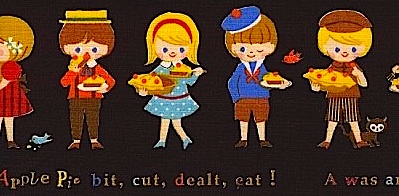 mark your calendar for june 12th, when rhino entertainment/atlantic records releases the documentary DVD atlantic records: the house that ahmet built
mark your calendar for june 12th, when rhino entertainment/atlantic records releases the documentary DVD atlantic records: the house that ahmet builthere are some outtakes from the seven-page ahmet ertegun feature I wrote for the april 2007 issue of mojo:
atlantic records co-owner jerry wexler: we just ham and egged it. there’s a lot of floundering going on when you’re making a record. we had a lot of good fortune between us, but it all happened more or less by accident. bobby darin was the first big one for us, and everybody thought he was black. I was running wild in the streets, and I was an incorrigible fuck-up, but even though I came to atlantic with a lot of street smarts, I was still an educated man, a reader. yet ahmet had a real continental flair – in one minute, he’d be talking french to an ambassador at the UN, saying, ‘au revoir, mon ami,’ and then he’d turn to a wino sitting on the couch and ask, ‘what you know good, holmes?’ he had that ability.
new orleans studio owner cosimo matassa: the difference between [ertegun and wexler] and, say, johnny vincent [founder of jackson, mississippi-based ace records, one of atlantic’s regional competitors] is that they knew what they wanted musically. they had very strong opinions about how they wanted things to go. sometimes, they had a verbal bout, but they also had an amazing ability to agree when it was over. they truly collaborated, and they were much more involved in the structure of a song, which I tried to stay out of. my job when I was working with them was to be transparent – if you couldn’t hear my involvement, it was success.
singer solomon burke: me being on atlantic was almost like a dream. my manager and I went to the offices on west 56th, and after sitting there for about 20 minutes, ahmet ertegun and jerry wexler walked out and said, ‘you’re signed.' to come from a label like apollo to atlantic was like the next phase. in those days, you’d hear ruth brown and lavern baker played every five minutes on the radio. I was sitting there in awe, looking at all these great pictures of clyde mcphatter and ivory joe hunter, thinking, this is the label of labels. then mr. ertegun pointed to the picture of ray charles and said, ‘have that picture removed now.’ I thought, wow, are they gonna give it to me? it was difficult to do R&B right away because of my religious convictions. I wondered, could we say that I’m on a soul label? jerry wexler said, ‘this is the red-and-black label, this is the most important label!’ but ahmet said, ‘hey man, if the man wants to sing soul, let him sing soul.’ then wexler didn’t like the idea of me speaking during my songs. ‘I know you’re a preacher man, but I don’t need you to preach,’ he told me. ahmet said, ‘hey man, maybe the church people will buy the record.’ they had that good cop bad cop act down! during my atlantic years, I feel like I went to high school and graduated from a university. working with mr. ertegun was like having a godfather guiding and directing you in many ways. his love of the music was pure, and if he made a commitment to you, it was always carried out. atlantic was where I first learned what BMI meant, and where I learned about having my own publishing company. it was a great educational moment in my career. we were all part of a family. cousins of music, I guess you’d call it.”
new orleans born producer allen toussaint: atlantic was my kind of company. they were cutting professor longhair and ray charles, people we considered near and dear to new orleans. back in the neighborhood, one of the guys would hear about a new atlantic record coming out, and you’d immediately drop what you were doing and head over to the one-stop on rampart street to buy a copy. atlantic offered that reachable hope for new orleans musicians. it was extremely gratifying to see these educated men who weren’t from the ‘hood, but who were so interested in getting this soulful music out to the world. I don’t mean the hits that had arrived, but the music with potential. when we heard a new atlantic single, we thought, yes, we have a chance.
mac rebennack, aka dr john: ahmet was a sharp dressing man, a pimp-looking motherfucker, and jerry was the extreme opposite – he looked like joe the newspaper reporter. I was impressed, but I couldn’t picture them going into any of these bucket of blood joints. maybe they had disguises in the hotel that they could change into before they went out. the way I saw them in the studio, I pictured them getting whopped, but I suppose they moved in the correct kind of circles no matter where they were. between ahmet, neshui, and wexler, atlantic made real good records. the quality was there – they had so much more advanced technology than we had in new orleans. we were still recording one-track, and they had sixteen tracks in their studio. there were so many dates going on at atlantic. ahmet drove me crazy, always calling about acts. a lot of times, in sessions, he’d say shit that was so left field of what was really going on. one day, we were cutting some fucking tune, and when we’re finished and packing up our axes, ahmet comes in. he’d been there the whole day, never saying one word, and he sadistically kicked a look at this guitar player and said ‘huh’ in that dry way of his. ‘huh,’ he said, ‘that was really a killer solo. too bad you didn’t play it on a good take.’ it was just one of those things, but he said it with no smile, no nothing. out of sheer nervousness, the poor guy laughed. ahmet, neshui, and jerry wexler were called omelet, nescafé, and mr. waxler around the studio. otis redding dubbed them with those names – because a money-making artist said it, they let it pass. but for some reason, they’d let some guy like me say it too.
jazz producer joel dorn: ahmet had the instincts of a broadway hustler, but he brought a sophistication and an elegance to the game. he wasn’t a regular guy – he’d been educated at the sorbonne, he lived all over the world, and he understood european and us culture. he told me once that when he was a young man, he made an active decision between being the president of turkey or the greatest record executive of all time. when a guy’s got a head that deep in his early twenties, he’s not a guy to mess with. not only did he have confidence – he had a vision, and at an age when most people are trying to figure out whether they want to wear loafers or shoes with laces, he was making decisions which affected the world. atlantic had three brilliant, one-of-kind producers. there was no other combination in the record business like that. they ran their separate fiefdoms – while ahmet and jerry were working on a clovers record or a ruth brown record, neshui might be recording john coltrane or the modern jazz quartet – but they understood each other’s worlds. as a result, atlantic was a singular, stand-alone label that had no precedent.
memphis producer jim dickinson: ahmet knew, but no one else was hip to the fact that the stones’ contract with EMI was running out. when they were recording in muscle shoals, the stones were broke, drained by keith’s drug trials and other stuff. they were technically still under contract with EMI, but cutting tracks for "sticky fingers," their first album on atlantic. ahmet’s eyes were bulgy, his teeth stuck out, and he had a van dyke goatee and mustache. I got the impression that every hair in his beard was exactly the same length, and I’m dead positive he was the only man in muscle shoals wearing cuff links – he was that clean, that put together. you couldn’t be unimpressed. he was taking up as much space as the rolling stones were, and he certainly held his own with them. ahmet was kind of high society – he really only talked to mick jagger, but then that’s the way the stones operated. jagger was gregarious, almost bubbly, and the interaction between he and ahmet was like country club stuff. unlike wexler, who was strictly up-from-the-gutter, out to prove that he was one of the boys, ahmet was definitely not one of the boys. when you were in a room with him, you weren’t even alive. I was walking in the courtyard with stanley booth, and I saw the [hotel] room ahmet had been in. the door was open, and mark myerson [wexler’s assistant who later became vice president of the label] was in the bathroom on his knees flushing the leftover keys, real quality pot, down the toilet. there had just been a raid on rick hall’s studio, so the muscle shoals guys were real paranoid, but no one was gonna say anything to ahmet or the stones.




No comments:
Post a Comment